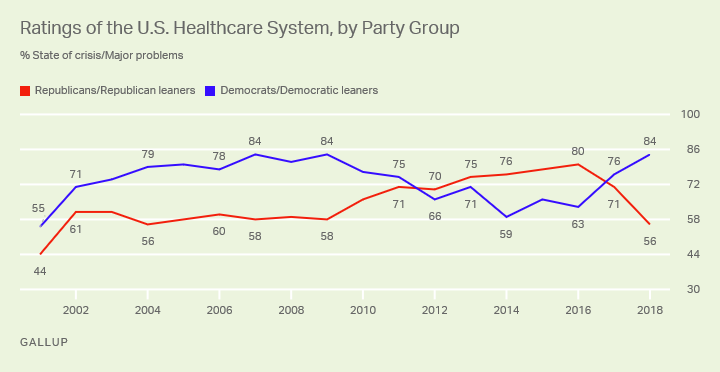By Rachel Bluth
Kaiser Health News, January 16, 2019
Scrolling through the GoFundMe website reveals seemingly an endless number of people who need help or community support. A common theme: the cost of health care.
Of the $5 billion the company says it has raised (in eight years), about a third has been for medical expenses from more than 250,000 medical campaigns conducted annually.
The prominence of the medical category is the symptom of a broken system, according to CEO Rob Solomon. He said he never realized how hard it was for some people to pay their bills: “I needed to understand the gigantic gaps in the system.”
Solomon talked to Kaiser Health News’ Rachel Bluth about his company’s role in financing health care and what it says about the system when so many people rely on the kindness of strangers to get treatment.
Q: KHN and other news outlets have reported that hospitals often advise patients to crowdfund their transplants. It’s become almost institutionalized to use GoFundMe. How do you feel about that?
It saddens me that this is a reality. Every single day on GoFundMe we see the huge challenges people face. Their stories are heartbreaking.
Some progress has been made here and there with the Affordable Care Act, and it’s under fire, but there’s ever-widening gaps in coverage for treatment, for prescriptions, for everything related to health care costs. Even patients who have insurance and supposedly decent insurance [come up short].
I would love nothing more than for “medical” to not be a category on GoFundMe. The reality is, though, that access to health care is connected to the ability to pay for it. If you can’t do that, people die. People suffer. We feel good that our platform is there when people need it.
Q: What have you learned that you didn’t know before?
I guess what I realized [when I came] to this job is that I had no notion of how severe the problem is. You read about the debate about single-payer health care and all the issues, the partisan politics. What I really learned is the health care system in the United States is really broken. Way too many people fall through the cracks.
The government is supposed to be there and sometimes they are. The health care companies are supposed to be there and sometimes they are. But for literally millions of people they’re not. The only thing you can really do is rely on the kindness of friends and family and community. That’s where GoFundMe comes in.
Q: But what does this say about the system?
The system is terrible. It needs to be rethought and retooled. Politicians are failing us. Health care companies are failing us. Those are realities. I don’t want to mince words here. We are facing a huge potential tragedy. We provide relief for a lot of people. But there are people who are not getting relief from us or from the institutions that are supposed to be there. We shouldn’t be the solution to a complex set of systemic problems. They should be solved by the government working properly, and by health care companies working with their constituents. We firmly believe that access to comprehensive health care is a right and things have to be fixed at the local, state and federal levels of government to make this a reality.
Comment:
By Don McCanne, M.D.
We’ve all heard stories about how individuals were referred to the GoFundMe crowdsourcing website when they were unable to pay for their medical care. What we don’t hear is how much of the unmet need can be filled by GoFundMe. Based on the numbers in this article, they have collected an average of about $200 million a year for health care costs. That is about 00.006 percent of our $3.5 trillion annual health care expenditures – a bit short of the need. Charity just won’t do it; the bill is too big.
Although we certainly admire the efforts of GoFundMe CEO Rob Solomon, he is the first to say, “access to comprehensive health care is a right and things have to be fixed at the local, state and federal levels of government to make this a reality.” It seems like this cries out for Single Payer Medicare for All, federally funded and administered on a regional and local basis. Nothing like good ol’ egalitarian solidarity.
Stay informed! Visit www.pnhp.org/qotd to sign up for daily email updates.
